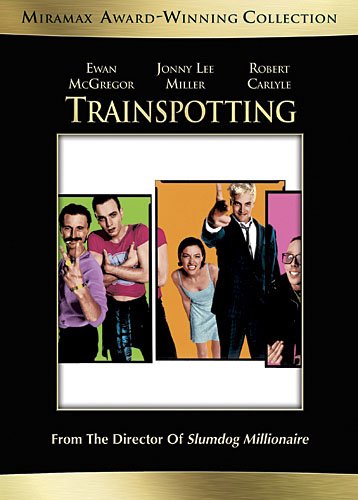
The latest to join the elite group of Oscar-winning directors, Danny Boyle may have won the award for his uplifting Bollywood-style drama, .nightsandweekends.com/articles/08/NW0800662.php>Slumdog Millionaire, but his resume isn’t filled with the kind of moving art-house dramas that you might expect from an Oscar-winning director. Instead, you’ll find the sci-fi thriller, Sunshine, the zombie adventure, 28 Days Later…, and, of course, the ground-breaking junkie drama, Trainspotting.
Though it wasn’t Boyle’s first feature (that was 1995’s Shallow Grave), the gritty and controversial Trainspotting is the film that first propelled Boyle into the spotlight. A far cry from game-show contestants dancing in the streets of Mumbai, Trainspotting instead follows Mark Renton (Ewan McGregor) and his four closest friends as they battle heroin addiction in the streets of Edinburgh.
From toilet-diving to job interviews on speed, Trainspotting holds nothing back. It shows the exhilarating highs of heroin addiction right along with its devastating lows. It shows Renton in the midst of his addiction, joyously stealing from friends, family, and even nursing homes to fund his next fix—and enjoying every minute of it. But it also shows the pain and suffering and nightmarish hallucinations that he endures in each attempt to get clean for good. And no matter how hard Renton tries to walk away, the guilt and despair and hopelessness of the real world always seem to bring him right back to the open arms of his dealer.
Despite complaints and protests that claim the contrary, though, there’s nothing glorifying in Boyle’s portrayal of heroin addiction. Sure, the high may be like nothing else—but it’s only a temporary escape from a whole lot of problems that won’t fix themselves. There’s no pot of gold at the end of the rainbow for these characters—only prison and withdrawal and death. The more they use, the worse things get, the more they need—it’s a never-ending cycle that viewers will never forget.
Released in 1996, toward the tail end of the grunge movement, Trainspotting deftly portrays Gen-X disillusionment and despair. At times, it’s darkly funny—and even playful—but, more than that, it’s tragic. It’s often bleak and depressing. Its heavy, pounding beats and hypnotic soundtrack will make your head spin. Its unforgettably graphic scenes will turn your stomach. And it’ll leave you feeling dizzy and exhausted—almost hung over. I can only imagine that the feeling must be similar to that of coming down from a high—because, to me, it feels an awful lot like the crash after a caffeine rush.
Trainspotting isn’t exactly a fun movie to watch—but it’s a significant film nonetheless. It tells more than just an eye-opening story of addiction; it’s also a story about crime and punishment and maybe (just maybe) some sort of redemption. It’s filled with unforgettable moments and spectacular performances. And it’s a worthy break-out film for a future Oscar-winning director.


